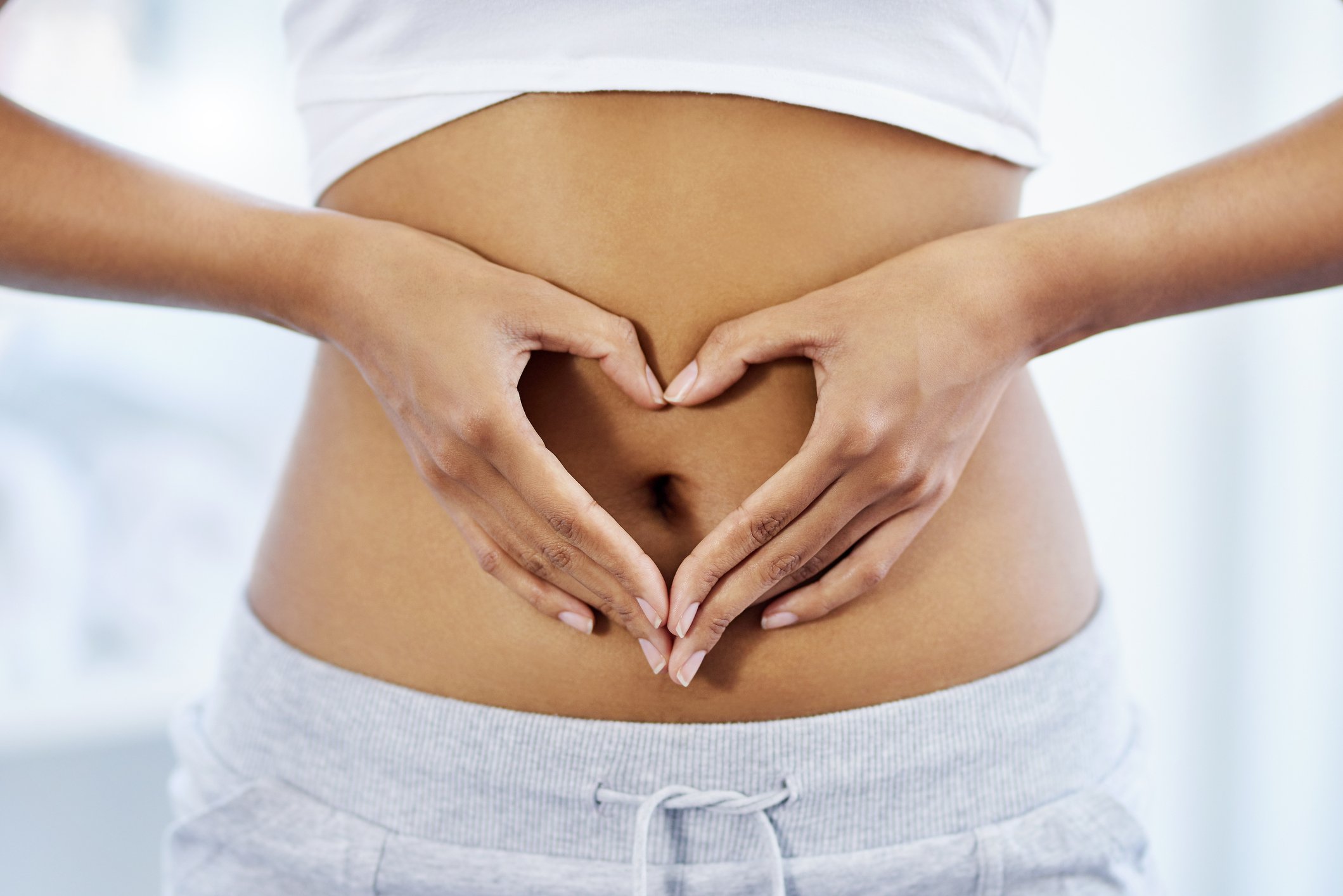What Causes Bloating? The Top Culprits Behind Your Bloated Belly
Bloating is a common digestive issue that affects many people. It is characterized by a feeling of fullness, tightness, or swelling in the abdomen. Bloating can be caused by a variety of factors, including diet, lifestyle, and underlying health conditions. In this blog post, we'll explore the causes of bloating, and provide tips and nutritional therapy solutions to help you get rid of bloating.
What is Bloating and Why Does it Happen?
Bloating can be caused by a variety of factors, including:
1.Diet
Certain foods can cause bloating, including high-fat foods, processed foods, dairy, beans, and cruciferous vegetables like broccoli and cauliflower. These foods contain complex carbohydrates that are difficult to digest, which can lead to gas and bloating.
2.Digestive Issues
Digestive issues such as irritable bowel syndrome (IBS), inflammatory bowel disease (IBD), and gastroesophageal reflux disease (GERD) can cause bloating. These conditions can affect the normal digestive process and cause inflammation, which can lead to bloating.
3.Hormonal Changes
Hormonal changes can also cause bloating, especially in women. Hormonal changes during the menstrual cycle, pregnancy, and menopause can cause fluid retention and bloating.
4.Medications
Some medications, such as antibiotics and laxatives, can disrupt the natural balance of gut bacteria and cause bloating.
5.Stress
Stress can affect the digestive system and cause bloating. When you are stressed, your body releases stress hormones, which can cause the digestive system to slow down, leading to bloating. If you want to find out how stress might be affecting your health, take my free quiz here.
Banishing the Bloat: Effective Strategies for Relief
1.Identify Trigger Foods
The first step in reducing bloating is to identify trigger foods. Keep a food diary and note which foods cause bloating. Once you have identified trigger foods, eliminate or reduce them from your diet.
2.Increase Fiber Intake
Increasing fiber intake can help reduce bloating by promoting regular bowel movements. Fiber helps to keep the digestive system healthy and can also reduce inflammation. Good sources of fiber include fruits, vegetables, whole grains, and legumes.
3.Drink Plenty of Water
Drinking plenty of water can help reduce bloating by flushing out excess salt and reducing fluid retention. Aim for at least eight glasses of water a day.
4.Reduce Salt Intake
Reducing salt intake can also help reduce bloating by reducing fluid retention. Avoid processed foods and fast food, as they are often high in salt.
5.Try Digestive Enzymes
Digestive enzymes can help improve digestion and reduce bloating. They work by breaking down complex carbohydrates that are difficult to digest. Digestive enzymes can be found in supplement form or in certain foods, such as papaya and pineapple.
6.Use Probiotics
Probiotics are beneficial bacteria that can help improve gut health and reduce bloating. They work by restoring the natural balance of gut bacteria. Probiotics can be found in supplement form or in certain foods, such as yogurt and kefir.
7.Eat Smaller Meals
Eating smaller meals can help reduce bloating by reducing the amount of food in the stomach. Aim for five to six small meals a day instead of three large meals.
8.Exercise Regularly
Regular exercise can help reduce bloating by improving digestion and reducing stress. Aim for at least 30 minutes of moderate exercise a day, such as brisk walking or cycling.
The Role of Nutrition in Managing Bloating
1. How an Elimination Diet Can Help
An elimination diet is a dietary approach that involves removing certain foods from your diet for a period of time to identify food sensitivities and intolerances that could be causing bloating. The most common foods that are eliminated during an elimination diet are dairy, gluten, soy, corn, and eggs. After the elimination period, the foods are reintroduced one at a time to see if they cause bloating or other digestive symptoms.
2. Reducing Bloating with a Low FODMAP Diet
A low FODMAP diet is a dietary approach that involves reducing or eliminating foods that are high in certain types of carbohydrates called FODMAPs, which can cause digestive issues such as bloating, gas, and diarrhea. FODMAPs are found in a variety of foods, including fruits, vegetables, grains, and dairy. A low FODMAP diet involves reducing or eliminating these foods for a period of time and then slowly reintroducing them to identify which ones are causing digestive symptoms.
3. Healing Your Gut: A Comprehensive Protocol for Reducing Bloating
A gut healing protocol is a comprehensive approach to improving gut health and reducing digestive symptoms. It involves a combination of dietary changes, supplements, and lifestyle modifications. The goal of a gut healing protocol is to improve gut function, reduce inflammation, and restore the natural balance of gut bacteria. Some of the key components of a gut healing protocol include:
Eliminating trigger foods
Adding in nutrient-dense foods such as bone broth and organ meats
Taking digestive enzymes and probiotics
Reducing stress through meditation or yoga
Getting adequate sleep
4. The Art of Food Combining: How to Improve Digestion and Reduce Bloating
Food combining is a dietary approach that involves eating foods in specific combinations to improve digestion and reduce bloating. The theory behind food combining is that different types of foods require different digestive enzymes to be broken down, and when these enzymes are mixed together, they can cause digestive issues. For example, food combining suggests that you should not eat protein and starches together, as they require different digestive enzymes. Instead, protein should be eaten with non-starchy vegetables, and starches should be eaten with non-starchy vegetables or fats.
Finding Relief: When to Seek Professional Help for Bloating
In conclusion, bloating is a common digestive issue that can be caused by a variety of factors, including diet, lifestyle, and underlying health conditions. Identifying trigger foods, increasing fiber intake, drinking plenty of water, reducing salt intake, and trying digestive enzymes and probiotics are some tips that can help reduce bloating. Nutritional therapy solutions such as an elimination diet, low FODMAP diet, gut healing protocol, and food combining can also be effective in reducing bloating and improving gut health. If bloating persists or is accompanied by other digestive symptoms, it is important to consult with a healthcare professional to rule out any underlying health conditions.
Are you tired of feeling bloated and uncomfortable after meals? If you're ready to take control of your digestive health and start feeling your best, schedule a one-on-one nutritional therapy session with me today. Together, we'll create a personalised plan that addresses the root cause of your bloating and other digestive issues. Say goodbye to uncomfortable symptoms and hello to a happier, healthier you. Contact me to learn more and schedule your session today.
References
Halmos, E. P., Power, V. A., Shepherd, S. J., Gibson, P. R., & Muir, J. G. (2014). A diet low in FODMAPs reduces symptoms of irritable bowel syndrome. Gastroenterology, 146(1), 67-75.
Liu, J., Fox, C. S., Hickson, D. A., & May, H. N. (2017). Dietary fiber and liver fat: A systematic review and meta-analysis of observational studies. Nutrients, 9(10), 1074.
MedlinePlus. (2022). Bloating. Retrieved from https://medlineplus.gov/ency/article/003123.htm
Moayyedi, P., Quigley, E. M., Lacy, B. E., Lembo, A. J., Saito, Y. A., Schiller, L. R., ... & Spiegel, B. M. (2017). The effect of fiber supplementation on irritable bowel syndrome: A systematic review and meta-analysis. The American Journal of Gastroenterology, 112(1), 58-74.
National Institute of Diabetes and Digestive and Kidney Diseases. (2022). Gas in the Digestive Tract. Retrieved from https://www.niddk.nih.gov/health-information/digestive-diseases/gas-digestive-tract
Ong, D. K., Mitchell, S. B., Barrett, J. S., Shepherd, S. J., Irving, P. M., Biesiekierski, J. R., ... & Gibson, P. R. (2010). Manipulation of dietary short chain carbohydrates alters the pattern of gas production and genesis of symptoms in irritable bowel syndrome. Journal of Gastroenterology and Hepatology, 25(8), 1366-1373.
Rao, S. S. C., Yu, S., Fedewa, A., & Systematic Review: Dietary Fiber and FODMAP-Restricted Diet in the Management of Constipation and Irritable Bowel Syndrome. Journal of Clinical Gastroenterology, 50, S33-S42.
Quigley, E. M. (2013). Bloating and abdominal distension: Old misconceptions and current knowledge. The American Journal of Gastroenterology Supplements, 1(1), 1-3.
Ruscio, M., & Carvalho, R. (2018). Bloating and Abdominal Distension: Clinical Approach and Management. Clinical and Translational Gastroenterology, 9(10), e196.
Simrén, M., Barbara, G., Flint, H. J., Spiegel, B. M., Spiller, R. C., Vanner, S., ... & Whorwell, P. J. (2013). Intestinal microbiota in functional bowel disorders: A Rome foundation report. Gut, 62(1), 159-176.

